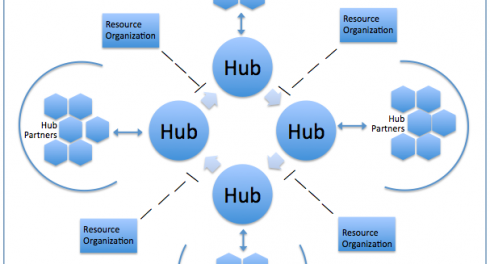 Photo: GPSA
Photo: GPSA
The 2018 GPSA Forum on Human Capital
Increasing transparency and accountability as a pathway to development in the 21st century remains one of the central goals of the open government reform agenda. At this year’s GPSA forum, participants heard that although governments had made some progress in implementing open governance reforms, the developmental impact is still yet to be seen. As far as human development is concerned, there is still a long way to go. The World Bank reports that 260 million children in poorer countries are receiving no education at all. A quarter of children under 5 in poor countries are malnourished. Half of the world’s population still do not have access to basic health care services due to failing health systems.
At the Forum it was clear that development advocates can use data from the World Bank’s Human Capital Index to make a stronger and more persuasive argument for investing in health and education because there is an economic cost for not doing so. Under the GPSA theme, Money matters: Public Finance and Social Accountability for Human Capital , the World Bank acknowledged the importance of social accountability in helping to fulfil the goal of the human capital project and made an appeal to development advocates to work with governments, funders and other actors to implement accountability strategies that will help to achieve the developmental impact of open government.
Barriers to human capital
Countries are failing to use public finances to invest more and better in the productivity of their citizens through health and education. Depending on the country context, barriers to human capital differ. Below are some key takeaways from the forum which explain why.
- Low capacities to mobilize domestic resources resulting in insufficient funds to invest in human capital.
- Prioritization is an issue. Governments are not putting money where it matters the most; preferring to invest in infrastructure projects rather than investing in people or human capital projects.
- Closing civic space is making it difficult for development advocates to monitor and hold governments accountable for the realization of basic human needs.
- Low citizen engagement with government data on public finance which makes it challenging for citizens to influence investments in human capital.
- Corruption preventing effective financing and delivery of human capital.
Successful social accountability approaches for human capital
The above-listed constraints are not only common to human capital. There is a long history of successful accountability approaches which have been applied to public finance/fiscal governance, health and education. Development advocates can learn from systematic evidence about social accountability strategies that have general positive development outcomes and more specifically in sector services delivery programs such as education and health.
To raise the resources for necessary human capital investments, countries will need to look beyond aid to boost domestic resource mobilization. Here the promise of spending on human capital may help incentivize tax compliance. Drawing insights from limited but promising emerging research captured in the Learning from Evidence by TAI and research partners at MIT’s Governance Lab and Twaweza, tax-paying citizens are more likely to uphold the social contract and pay taxes when they receive information about how tax revenue is being used to supply services that they care about. On the other hand, tax-paying citizens are less likely to be tax compliant if they perceive governments to be corrupt thereby impacting the government’s domestic resource mobilization efforts.
Social accountability practices may, in turn, be harnessed to limit leakages from domestic revenues and in human capital investments. The Forum explored different pathways for applying accountability strategies to fight corruption highlighting the need to apply problem-solving, holistic and collaborative strategies in order to successful grapple with corruption but also expressed contextual challenges with implementation. However civic actors are learning and sharing how to navigate barriers in their contexts to apply collaborative strategies for anti-corruption.
Looking to the future
To achieve human capital potential, and for countries to rise up the World Bank index, one essential thing will be the protection of civic space. Without it, development actors are not able to apply effective strategies for developmental impact. It was clear through discussions at the Forum that although closing civic space is a common global problem, experiences vary significantly and there is a need to understand contextual constraints to civic space in different countries and identify the relevant strategies. However, there was a commonly shared view that multi-stakeholder dialogue and engagement, as well as a responsible system of regulation, are important for enabling social accountability and keeping civic space open. For those interested in knowing how accountability groups are experiencing shrinking space, TAI is on the cusp of publishing the findings of a survey of TAI member grants which may be useful for the social accountability community to inform future strategies.
This blog was written by Yeukai Mukorombindo and Edith Mecha (Communications Fellow at TAI).


